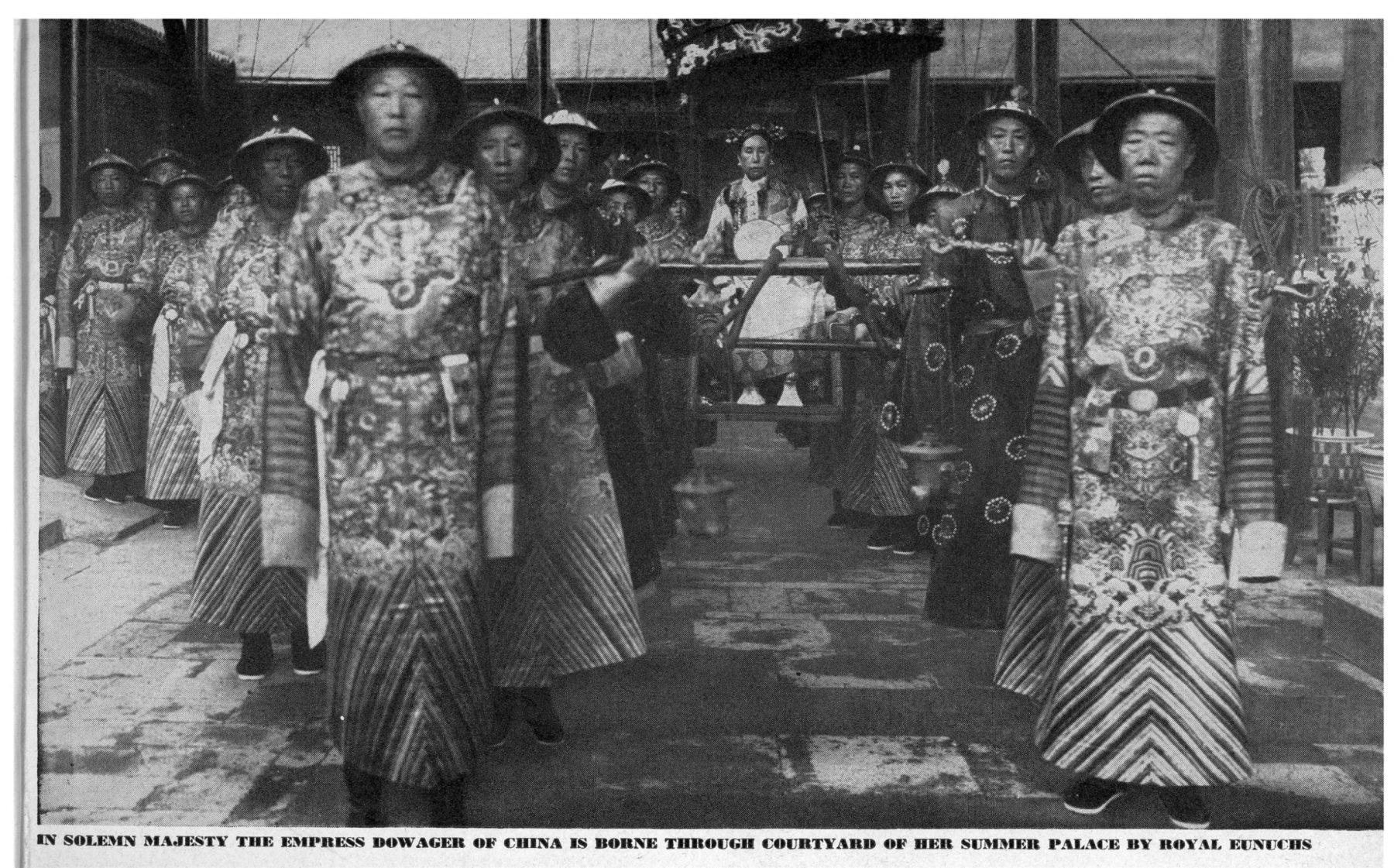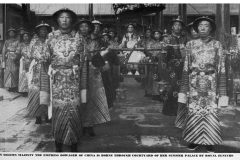Eunuchs have a long and turbulent history in the Imperial governments of China. They were generally the only men other than the emperor who were allowed to enter the inner courtyards where the imperial family lived. Other men including officials, military guards, and even male relatives of the emperor were not allowed to enter the inner sanctums and were often required to leave the palace grounds at night. Emasculation was thought to turn eunuchs into a sort of non-human that could enter the Emperors realm without violating it, presenting a threat, or undermining the emperor’s privacy. Their inability to have sexual relations saw their extensive use in the retinues of the Empress and Imperial concubines. Being so close to the core of Imperial power and influence in government, they were well positioned to gain and wield large amounts of wealth and influence. These opportunities saw many poor families offer up their young sons to become eunuchs.
The castration process was well documented by the Ming period. The young male child was brought by their family or were orphans. The castrations were usually performed with one slash of a small knife outside the Forbidden City for a fee of six silver pieces. The Forbidden City contained a special eunuch clinic where candidates had their genitals removed while sitting on a special chair with a hole in it. The eunuchs lost their testicles and penis (“the three preciouses”). The only local anesthetic used was hot chili sauce. After the procedure a plug was placed in the wound and the urethra and left there for three days. If urine poured out of the wound after the plug was removed, the operation was considered a success. If the operation was not successful, the patient usually died a painful death. Candidates that did not survive were carried way with their penis and testicles in a pouch for reunification in the afterlife.
The practice reached its peak during the Ming dynasty with some 20,000 being employed in the Forbidden City. Imperial eunuchs survived until 1924 when the last 1,500 of them were banished from the Forbidden City, according to one observer, “carrying their belongings in sacks and crying piteously in high pitched voices.” The last imperial eunuch, Sun Yaoting, died on December, 17, 1996 at the age of 93 at his home in a Beijing temple. He was offered by his family and castrated at the age of 8. Unfortunately for Sun, he was emasculated only a few months before the end of the Qing dynasty in 1911 and his genitals were destroyed by his family in the 1960s during the Cultural Revolution out of fear that they would be punished by Red Guards for having them (Demick 2009)(Jia 2009).
Sources:
Demick, Barbara (2009). Last Chinese eunuch’s inside view of history. Los Angeles Times, March 2009. Accessed Jan. 2020 – https://www.latimes.com/archives/la-xpm-2009-mar-06-fg-china-eunuchs6-story.html
Jia Yinghua (2009). The Last Eunuch of China: The Life of Sun Yaoting. China Intercontinental Press; 1st edition, 2009.



